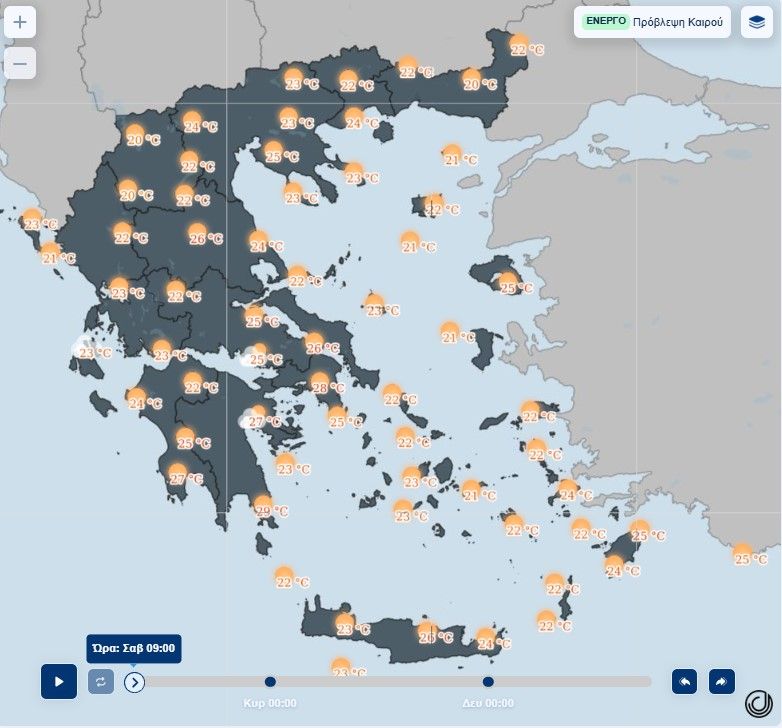New wages in public and private sector

The minimum wage is increased from 1/4/2025 to € 880 (an increase of 50 euros gross and 34 euros).
At the same time, 19 benefits are increased. The increase, as Prime Minister Kyriakos Mitsotakis said in his presentation to the cabinet, will be in force on April 1st and has been leveraging 19 benefits and the import salary in the State.
In particular, on the recommendation of the relevant ministers to the Council of Ministers, the minimum wage will increase from 830 to EUR 880 – a percentage increase of 6.02% – and there will be a similar increase in the minimum wage from EUR 37.07 to EUR 39.30.
This year’s increase is accompanied by an institutional section: for the first time the protection of the minimum wage extends to the State, as it will be the introductory salary for civil servants. As a result of the connection, the remuneration of civil servants will rise horizontally by 30 euros this year and further increases in the coming years.
According to government sources, with the new increase, the minimum wage will be increased by 35.4% compared to 2019. It is emphasized that the government’s target is for the minimum wage to continue to increase so that by 2027 it reaches 950 euros.
This means that the next three years (2025-2027) should be given annual increases of around 40-50 euros, setting the minimum wage at 870-880 euros in 2025, € 910 in 2026 and € 950 or more in 2027. At the same level, the import salary will rise to the public salary.
By 2025, the import salary in the State will not be lower than the minimum wage. By 2027, the minimum wage will be determined through the consultation of the social partners, with the final decision being taken by the government.
Changes include the regulation for public sector workers, the addition of criteria such as purchasing power and living costs, as well as the creation of a scientific committee and advisory committee by social partners to make proposals on the amount of the minimum wage.
However, official figures show that our country is a « champion » in precision, last in the EU purchasing power and first in income taxation! In particular:
22% of wages and pensions are withheld by taxation and health reservations (mainly taxation).
According to Eurostat (2023) in the last position of the EU, the purchasing power of the average annual customized full -time salary in Greece has fallen under Bulgaria.
During the period 2024-2027 the average wage will increase by 15% while income tax by 41%, while for the period 2020-2027 the average annual salary will increase by 32% while income tax by 114%, according to Eurostat.
Greece is in the 12th place in the European ranking in terms of the level of the minimum wage.
The benefits that are reinforced
The benefits increased due to the increase in the minimum wage are:
1. Unemployment (55% of the basic wage, or 61.4% of the minimum wage). It will reach 540 from 509 euros.
2. Marriage (10% of the minimum wage) from 83 euros to 88 euros.
3. Three years (10% -30% in basic salary).
4. Working allowance (50% of unemployment allowance by expiry). It will rise to 270 euros.
5. Builders (70% of the 37 -fold of the basic wage).
6. Rhetoric lenses, potters, shipbuilding workers (70% of the 35 -fold of the basic wage).
7.
8. Artists, Theater Actors, Tourism Workers (70% of the 25th Century Wage).
9. Special lump sum allowance in the position of the abolished 3 -month registration, unemployment, job search benefits (37.5 daily unemployment benefits).
10. Maternity (equal to minimum wage for 9 months).
11. Employer insolvency (from 1 to 3 minimum wages).
12. Parental license (minimum wage for 2 months).
13. Student examination allowance (30 wages for undergraduates, 10 for postgraduates).
14. Education in the DPA Schools (75% of the basic wage, per day).
15. EPAS-DIPA apprenticeship (50% of the basic wage per day).
16. TEI and IEK IEK student exercise (80% of the basic wage per day).
17. Employers’ subsidy for TEI student exercise (50% of the basic wage per day).
18. Tourist school internship allowance (60% of the basic wage per day).
19. For working students participating in exams: 30 minimum wages for undergraduates / 10 minimum wages for postgraduates.
Fictional years
At the same time, the cost of fictitious years is increasing. In addition to the benefits, the increase in minimum wage causes charges in the recognition of fictitious years of insurance, as the minimum acquisition amount is linked to the minimum wage and amounts to 20% of the basic salary.
Examples
The gross increase in the minimum wage that will apply from 1/4/2025 will amount to € 50:
This corresponds to a monthly net increase of € 34 for employees without children, no other income and € 43 for employees with 2 or more children without other income, after payment of insurance contributions and income tax.
On an annual basis (14 salaries), the net benefit of employees is € 473 (no children) and € 606 (with 2 or more children).
Overall since December 2019 these employees receive additional net € 195 (no children) and € 215 (with 2 or more children) each month and € 2,735 (no children) up to € 3,010 (with 2 or more children) per year.
Head of Department, University Education, No Children, with 20 years of service:
In December 2024 he received € 2,129 gross and € 1,444 net. In April 2025 it will receive € 2,159 gross and € 1,469 net.
The annual increase in its gross earnings in April 2025 compared to December 2023 is € 2,244 (1.1 monthly gross salary. The corresponding increase in net earnings is € 1,407 (1 net salary)
An employee without a position of responsibility, secondary education, no children, with 20 years of service:
In December 2024 he received € 1,288 gross and € 949 net.
In April 2025 it will receive € 1,318 gross and € 972 net.
The annual increase in gross earnings in April 2025 compared to December 2023 is € 1,200 (1 gross salary) or € 779 net (0.9 net salary).
* Examples do not include any overtime fees, motivation for achieving targets, border allowance, etc. which also increased.







